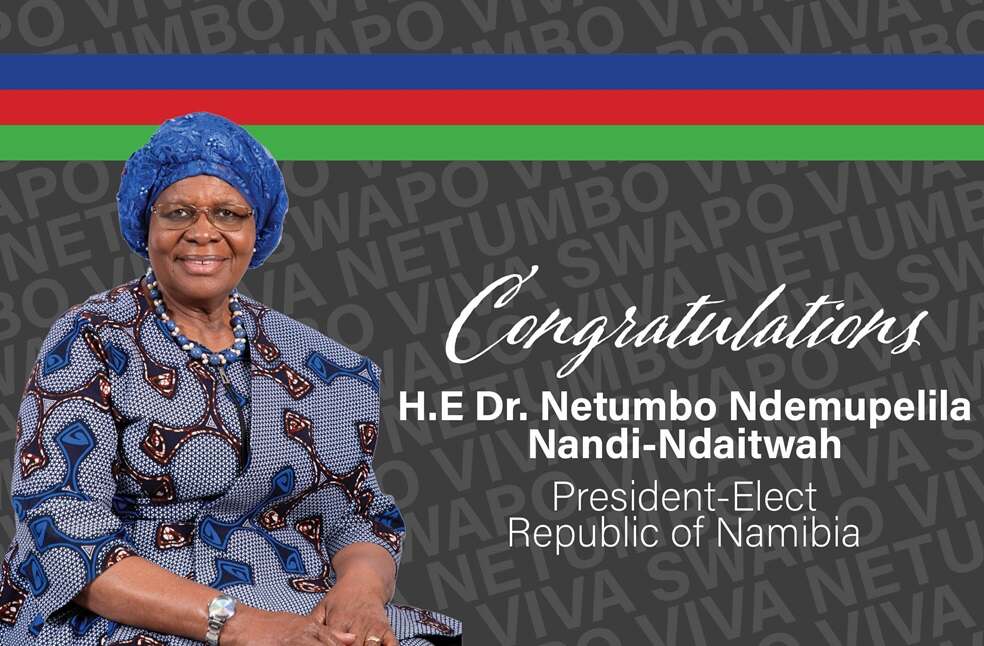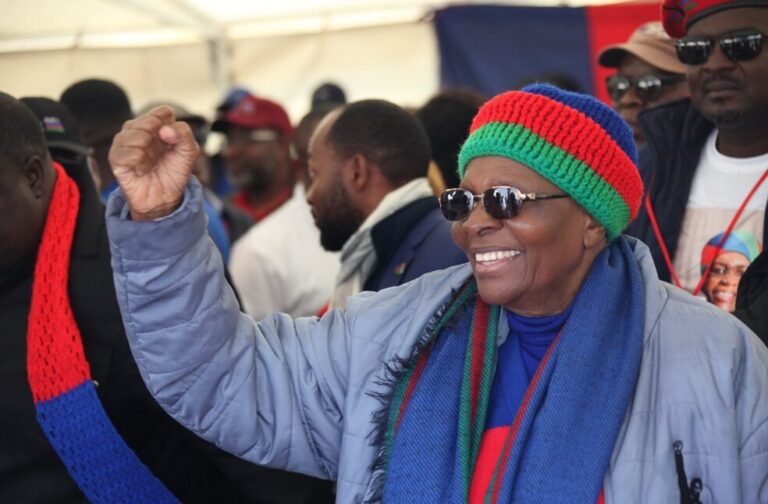Windhoek: Dr Netumbo Ndemupelila Nandi-Ndaitwah, a prominent figure from the South West Africa People’s Organisation (Swapo), has been elected the first female president of Namibia following last week’s contentious election.
According to the Electoral Commission, Nandi-Ndaitwah secured over 57 percent of the vote, with her closest challenger, Panduleni Itula of the Independent Patriots for Change (IPC), garnering 26 percent.
However, the election process has been marred by accusations of electoral malpractice. Logistical issues and a three-day extension to polling in some areas led Itula to claim that his party would not recognise the results.
Itula called for an investigation into the irregularities, prompting several opposition parties to boycott the announcement of the results on Tuesday evening.
Thank you Comrades
Thank you Namibia
Now Hard Work pic.twitter.com/AQFQBlNKIO— H.E Dr Netumbo Ndemupelila Nandi-Ndaitwah (@VPSWAPO) December 4, 2024
Despite the controversy, Nandi-Ndaitwah expressed confidence in her victory. “The Namibian nation has voted for peace and stability,” she stated after the results were confirmed.
Swapo, which has governed Namibia since independence in 1990, remains a powerful political force. Nandi-Ndaitwah, currently serving as the country’s vice president, has been a long-standing member of the ruling party and has held key positions in government for over 25 years.
Her election marks a significant milestone in Namibia’s political history, placing her alongside Tanzania’s Samia Suluhu Hassan as one of the few female heads of state in Africa.
Itula, a trained dentist, has been a vocal opponent of Swapo’s leadership. His party, IPC, made notable gains in the 2019 presidential election, reducing Swapo’s vote share from 87 percent to 56 percent.

Following the disputed results, the IPC announced it would pursue legal action through the courts and urged individuals affected by the election mismanagement to file complaints with the police.
Swapo, which led Namibia’s struggle for independence from apartheid South Africa, has long dominated the nation’s political landscape. However, recent regional trends, including the loss of parliamentary majorities by South Africa’s African National Congress and Botswana’s Democratic Party, have raised questions about the future of liberation movements in the region.



